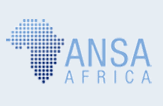Financing for climate change: gender equality
06 May 2010
UNDESA
New York: Climate change and gender equality are issues that cut across all others in the development sphere. They occupy central places in international development policies and strategies. There is a need, however, to ensure that these two issues are dealt with in a synchronized and optimal way.
We know that climate change affects developing countries the most. Many have seen shifts in rainfall patterns, desertification and rising sea-levels. Major drops in food production and rises in degraded lands have resulted from the impacts of climate change. So has increased poverty, especially among women. Women often have less education, fewer job opportunities and they are the primary care-givers for their children. They provide food, water and fuel for their families and they work the lands. When climate changes shock the economic and social stability of their communities, therefore, women suffer intensely.
The fights against climate change and for gender equality, therefore, are inextricably linked. Efforts to help communities adapt to and mitigate climate change must target women as a priority group.
Tofacilitate your discussion today, allow me to share some preliminary thoughts about how Governments can combat climate change and at the same time promote gender equality.
* It is critical that gender equality perspectives be fully taken into account in decision-making processes of funding mechanisms - such as the Adaptation Fund and the future "Green Climate Fund" under the Copenhagen Accord.
* It is also critical to include women and gender equality experts in all decision-making processes, especially those concerning funding criteria and resource allocation.
* A "gender analysis" should be conducted of budget lines for climate change financing.
* Microfinance services should be expanded, for they can provide women with the skills and assets that protect them from climate-related stressors and shocks.
These are a few techniques that governments and development organizations can use. They can help create a "climate and gender lens" through which the full cycle of financing - planning, budgeting, implementation and monitoring - are viewed and acted upon. With time, these techniques should become second-nature - part of everyday operations. Only then do we stand a chance at truly advancing both causes - the fight against our climate's degradation and our mission to help the world's poor, the majority of whom are women.
The United Nations has been working on many fronts to advance these causes. Some progress came out of the Copenhagen Accord, though much remains to be done. The Accord says that developed countries will mobilize up to $100 billion in financing for climate change mitigation and adaptation in developing countries by 2020. In the meantime, developed countries undertook the collective commitment to provide new and additional resources, approaching $30 billion, for the period 2010-2012, with balanced allocation between adaptation and mitigation.
The Accord, however, was not a legally binding instrument. The breakdown between public and private sources was not specified. Neither were the operational details for the Copenhagen Green Climate Fund. The Accord's weaknesses have not held us back. Following the Conference, the Secretary-General established a High-Level Advisory Group on Climate Change Financing. The Group will study the potential sources of revenue for financing mitigation and adaptation activities in developing countries, and it will report on progress made. Its first meeting was held on 31 March.
In terms of ECOSOC, the Annual Ministerial Review of the Council will focus on gender equality and the empowerment of women this year. We look forward to the identification of action-oriented recommendations that can help countries accomplish their gender equality goals and their climate change goals.
May I also remind you that the Commission on Sustainable Development, at its 18th session next month, will also take up a number of themes pertinent to climate change financing and gender equality. One focus will concern the key role that women have in shaping consumption habits. They buy for themselves and for their households. As such, they are central players in achieving sustainable consumption patterns.
I hope that as part of the global preparatory meeting for ECOSOC, as well as the forthcoming high level plenary review of the MDGs in 2010, this meeting will energize the debate on gender equality and climate change and the overall progress made on the MDGs.
* By Mr. Sha Zukang, Under-Secretary-General for Economic and Social Affairs, New York, 21 April 2010
Keywords: gender budgeting, climate change, UN, MDGs
|

